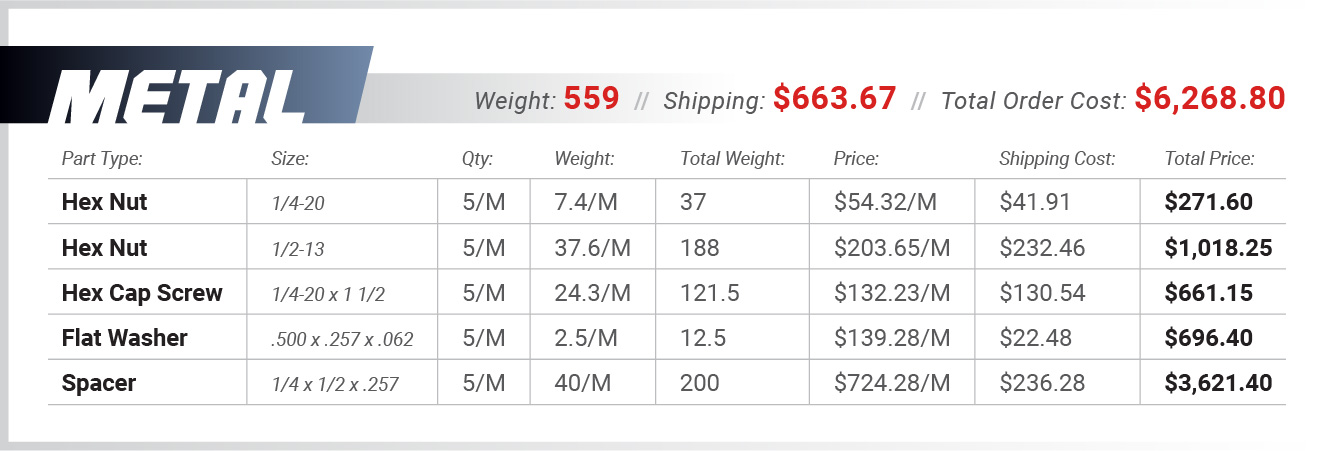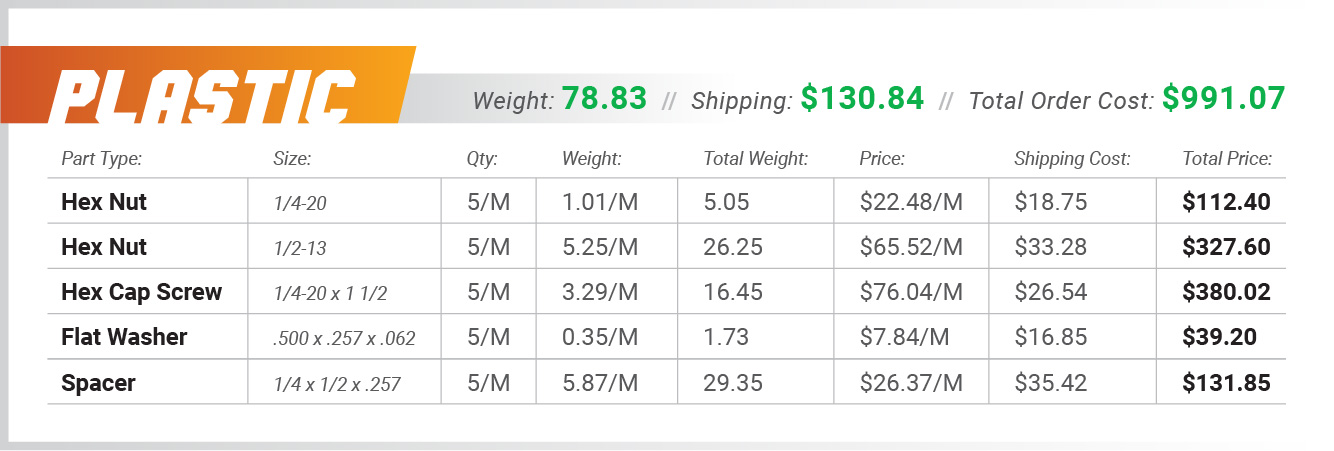
Plastic fasteners have emerged as a preferred choice for engineers, manufacturers and DIY enthusiasts alike. Volt Industrial Plastics has articulated several compelling arguments underscoring why plastic is superior to metal in many applications, particularly in construction and manufacturing. But what makes them stand out?
Unlike traditional metal fasteners, plastic fasteners offer a lightweight yet durable alternative. This makes them ideal for applications where weight reduction is crucial without compromising on strength.
One of the significant advantages of plastic fasteners is their resistance to corrosion. This makes them suitable for use in outdoor environments, marine applications and industries where exposure to moisture or chemicals is a concern.
Plastic fasteners can be tailored to meet specific design requirements. From different shapes and sizes to color options, customization allows for greater flexibility in product development and branding. This flexibility allows for the elimination of post-production processes like painting or laser marking, further reducing costs and manufacturing time.
Despite common misconceptions, plastic can match or even exceed the strength and durability of some metals. Specialized design techniques enable the production of plastic parts that offer similar or superior physical and chemical properties to their metal counterparts. Moreover, plastic parts are corrosion-resistant, non-conductive, UV resistant, and have a longer lifespan, often lasting up to six times longer than metal in similar applications.
Plastics are non-magnetic, non-toxic, and can withstand extreme temperatures, making them invaluable in various industrial applications where these properties are essential.
Plastic fasteners are more cost-effective than their metal counterparts, offering savings in both material and production costs without sacrificing performance. Plastic materials are generally more affordable to produce in large quantities compared to metals, potentially leading to savings of 25-50% when substituting metal parts with plastic ones. This cost-saving aspect is partly due to the ability to replace multiple metal components with a single plastic part, reducing the need for additional fasteners and assembly efforts.


In the fast-paced world of electronics manufacturing, precision and reliability are paramount. Plastic fasteners provide secure attachment solutions for circuit boards, enclosures and other electronic components.
In the construction industry, plastic fasteners are valued for their resistance to moisture and corrosion. They find applications in roofing, siding, insulation and other building materials.
From household appliances to furniture assembly, plastic fasteners offer a convenient and cost-effective solution for securing components in a wide range of consumer products.
Plastics offer a compelling range of benefits over metals, making them the preferred choice in many sectors. From cost savings and enhanced design capabilities to superior strength and environmental resistance, the advantages of plastic are clear. As manufacturing techniques continue to evolve, the gap between what can be achieved with plastics versus metals will likely widen further, cementing plastic's place as a material of choice for the future.